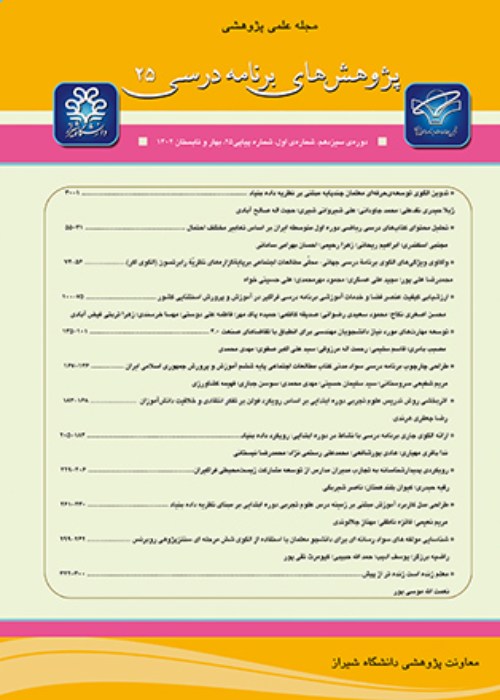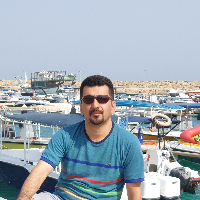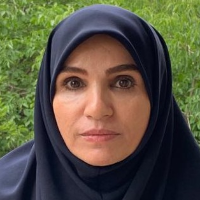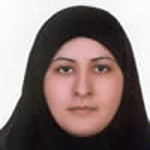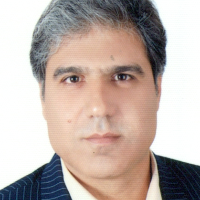Identifying the Components of High School Students' Cultural Literacy: A Meta-Synthesis Study
According to Piner, for a better understanding of the curriculum, cultural doors must be opened and human experience must be integrated not only in the West but also in all societies and countries. Education plays a key role in shaping cultural coexistence in multicultural societies. Cultural literacy provides the ability for discovering information contained in different cultural elements and is needed as a basis for introducing culture to society and accelerating the process of cultural learning. Concerning Iran, cultural, racial, ethnic, religious and linguistic diversities are amongst the most prominent factors that if ignored, despite many favorable opportunities that they create, can lead to many social problems and challenges. Considering the importance of literacy in the present century and the complexity of today's world, it is very important to pay attention to the literacy issues in the curriculums, the development of desirable curriculums, and the impacts they can have on their audiences. Considering this, the importance of secondary school education, which is considered as the origin of adolescent education and which can affect adolescent beliefs and attitudes cannot be declined by anyone. The observations and lived experiences of researchers as teachers, however, can indicate that the current system of Iranian secondary education is not effective in this regard. Considering this, the programs presented by the system are centralist and, there is no trace of deep cultural education in it. The results of research conducted in the field of cultural literacy in relation to the country's secondary school curriculums can indicate that no coherent and effective attempt has been made to develop curriculums based on cultural literacy in the Iranian educational system. Furthermore, to the present researchers' knowledge, no study has investigated the components of cultural literacy in Iranian secondary school education. Therefore, this study, benefitting from a combination of different models designed with a focus on the components of cultural literacy, is an attempt to identify components of cultural literacy in Iranian high school education and to examine the nature of the identified components. The results of this meta-synthesis study can serve as a guide and provides a model for the country's education policy makers who are concerned with globalization and also curriculum designers who are trying to design a model in response to the society's new needs arising from dealing with other cultures. In general, this study aims to provide appropriate feedback necessary for producing change in the existing curriculums through extracting the most important components of cultural literacy in relation to high school students. Accordingly, a qualitative research approach and a meta-synthesis method (Sandlowski & Barros, 2006) was used for collecting data in this study. The study sample was selected using the acceptance criteria and the Critical Appraisal Skills Programme (CASP) checklists was used to assess the quality of the obtained data. The data was then analyzed through content analysis and coding. The validity of the findings, the agreement between the two coders was then measured and approved. Based on the analysis results, 4 dimensions and 14 components were identified. Furthermore, the cultural self-awareness dimension included multicultural literacy, practical skills, academic skills, familiarity with symbols, and life skills. The critical thinking dimension consisted of higher level thinking, correct reasoning, knowledge segmentation, context of use, and process. The responsibility dimension included the two components of individual responsibility and social and civil responsibility. And, finally, the effective leadership dimension included the cultural requirements of future societies and influential global roles. The results of this study can provide researchers, education planners, and those involved in the field of education with a basis for considering cultural literacy as an important issue in research and education. Considering the fact that the ultimate goal of a meta-synthesis study can be the emergence of new fields of research and based on the findings of this study, the present authors suggest researchers interested in the field of culture and multiculturalism to conduct further studies for identifying more cultural literacy components, to understand major challenges for developing cultural literacy in different communities, and to look for solutions for responding to those challenges. In addition, future researchers can benefit from the components extracted in this study for designing an optimal cultural literacy curriculum for high school students. Considering the effective role of teachers as key elements in the country's education system, future studies can also focus on how teacher competencies can be used for teaching cultural literacy to students. Finally, as the implementation of the cultural literacy curriculum would not be possible without identifying the obstacles to its development, future researchers are suggested to identify the internal and external barriers against the development of cultural literacy and to provide solutions to overcome them.
- حق عضویت دریافتی صرف حمایت از نشریات عضو و نگهداری، تکمیل و توسعه مگیران میشود.
- پرداخت حق اشتراک و دانلود مقالات اجازه بازنشر آن در سایر رسانههای چاپی و دیجیتال را به کاربر نمیدهد.
